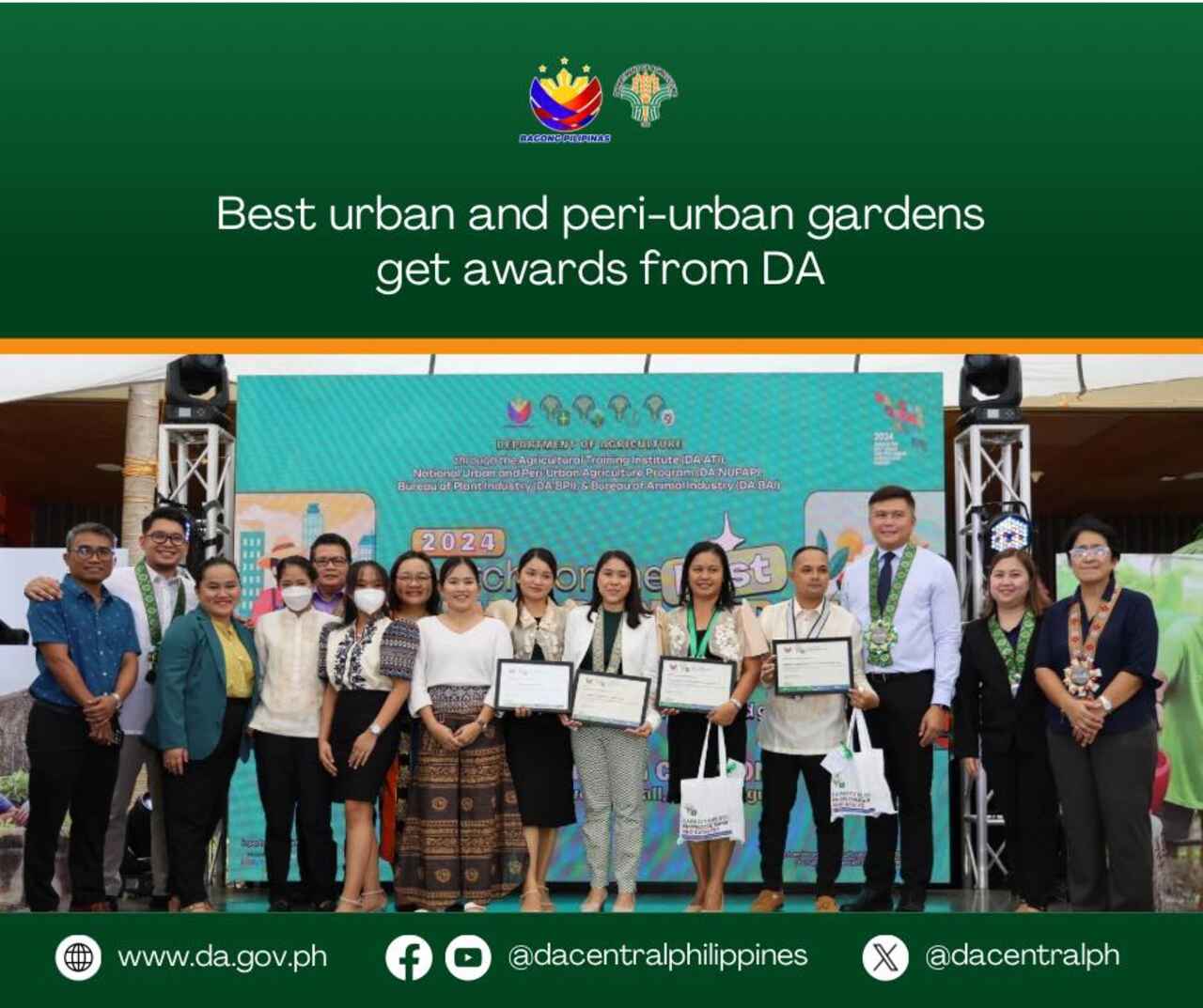The Department of Agriculture (DA) in the Philippines is an agency dedicated to overseeing the development of the agricultural and fisheries sectors. Established in 1898, its main goal is to ensure food security, enhance farm productivity, and improve the livelihoods of farmers and fisherfolk through sustainable practices and comprehensive support programs.
The DA, as an agency, has been tasked with shaping agricultural policies and implementing initiatives that address the diverse needs of stakeholders within the sector. By providing financial assistance, training, and resources, the department fosters economic growth, job creation, and community empowerment, ultimately contributing to a resilient agricultural landscape that currently supports the nation’s food supply.
What is DA?
The DA is the primary government agency tasked with overseeing agricultural and fisheries development. Its primary mission is to ensure food security, improve farm productivity, and enhance the livelihoods of farmers and fisherfolk. The DA is led by the Secretary of Agriculture, who is appointed by the President of the Philippines.
The DA has a long history, dating back to its formation in 1898 during the First Philippine Republic. Over the years, the department has undergone multiple changes in name and structure, adapting to the country’s evolving needs. Today, the DA continues to promote sustainable agricultural practices and address challenges in the sector, such as food security and rural development.
History
The Department of Agriculture (DA) was first established as the Department of Agriculture and Manufacturing on June 23, 1898, under President Emilio Aguinaldo’s leadership. During the American period, it became the Insular Bureau of Agriculture and later evolved through various reorganizations. In 1974, it was officially named the Department of Agriculture, separating from the Department of Natural Resources. Throughout the 20th century, the DA introduced key agricultural programs, such as rice and corn production initiatives and national planning efforts for crops. Recent leadership, including President Ferdinand Marcos Jr., aims to address long-standing agricultural challenges with a focus on food security and value chain improvements.
Logo
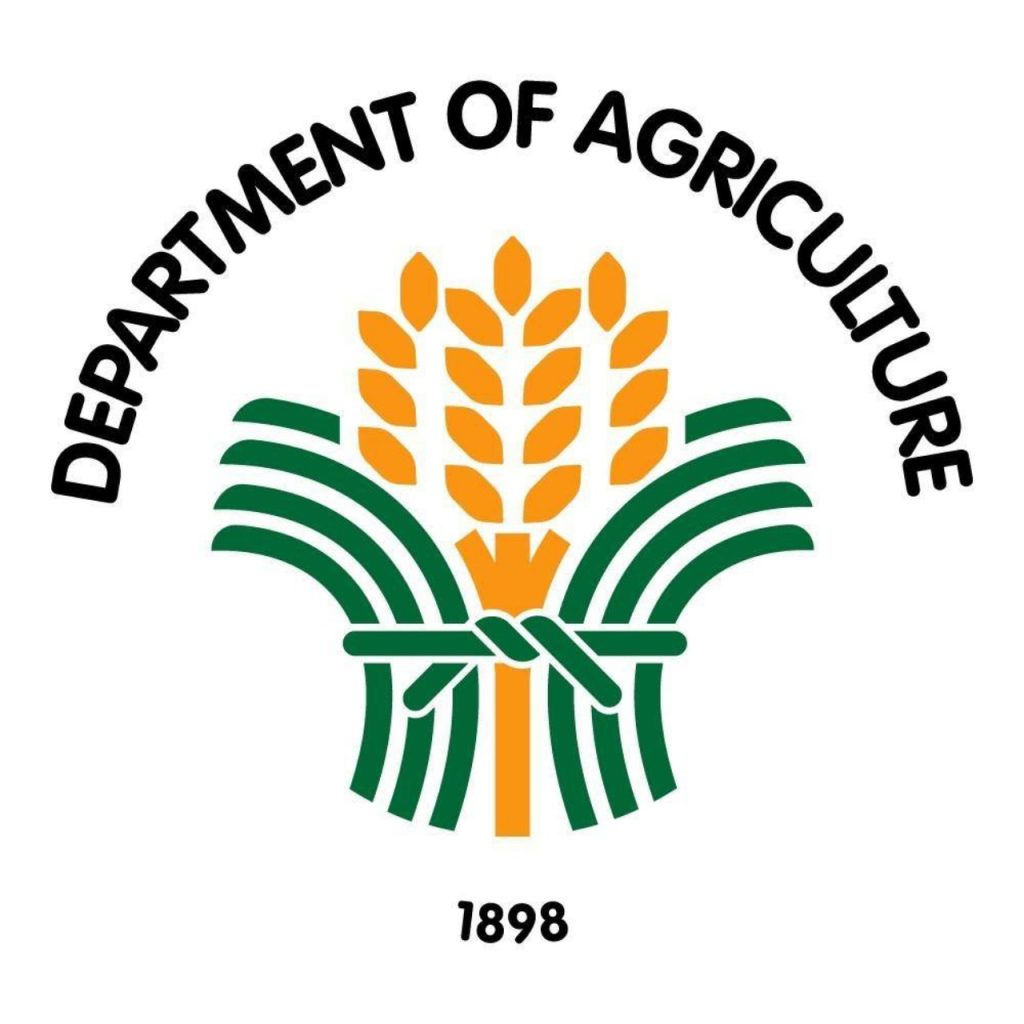
The DA logo features several elements including a golden sheaf of rice at the top center, symbolizing the central role of agriculture in providing food security for the nation. The sheaf is tied with a green band, representing unity and collective effort in improving agricultural productivity. The green stalks also reflect the growth, sustainability, and development of the agriculture sector. The year “1898” signifies the establishment of the department, marking its long history and contribution to the Philippine agricultural landscape.
Mission
“To collectively empower farmers and fisher folk and the private sector to increase agricultural productivity and profitability, taking into account sustainability and resilience.”
Vision
“A food-secured and resilient Philippines with empowered and prosperous farmers and fisher folk.”
Core Values
The DA is guided by core values that shape its operations and commitment to serving the agricultural sector. These values include integrity, responsiveness, and a dedication to empowering farmers and fisherfolk, ensuring that the department effectively meets and fulfills its mission of supporting the needs of its stakeholders.
- Responsiveness: The DA prioritizes timely and effective delivery of services to farmers, fisherfolk, and industry stakeholders, ensuring their needs are met promptly.
- Integrity: Upholding honesty and reliability in all interactions, the DA fosters trust among its employees, stakeholders, and the public.
- Excellence: The department strives for high standards in service delivery and program implementation, promoting continuous improvement and innovation.
- Empowerment: The DA focuses on empowering farmers and fisherfolk by providing them with the necessary tools, resources, and support to enhance their livelihoods.
- Collaboration: Building alliances with local government units (LGUs), educational institutions, and other stakeholders is essential for achieving shared goals in agricultural development.
- Sustainability: Committed to sustainable agricultural practices, the DA emphasizes environmental stewardship and resource conservation in all its initiatives.
These core values guide the DA in fulfilling its mission to enhance agricultural productivity and ensure food security while supporting the welfare of farmers and fisherfolk across the Philippines.
Service Pledge
The DA Service Pledge outlines the commitment of its officials and employees to serve the public with integrity, efficiency, and dedication. Guided by this pledge, the DA ensures that its services meet the needs of farmers, fisherfolk, stakeholders, and the general public.
- Serve promptly, efficiently, courteously, and impartially from Monday to Friday, 8:00 AM to 6:00 PM.
- Ensure strict compliance with service standards based on RA 9485 and RA 6713.
- Be responsive to the needs of farmers, fisherfolk, stakeholders, and the public.
- Value every citizen’s feedback, especially from the poor, underprivileged, disabled, and elderly.
- Act immediately in providing technical and support assistance.
- Commit to serve the public with integrity and dedication.
- Provide accurate and accessible information through the DA website 24/7.
Mandate
The Department of Agriculture (DA) plays a vital role in promoting agricultural development and supporting the growth of the agriculture, forestry, and fisheries (AFF) sectors. By improving productivity and profitability for farmers and fisherfolk, the DA contributes to the country’s economic growth and poverty reduction.
- Provide the policy framework for agricultural development.
- Offer public investments and support services for domestic and export-oriented agribusiness.
- Improve farm income and create employment opportunities for rural workers.
- Encourage public participation in agricultural policy-making.
- Regulate and monitor agricultural programs and laws.
- Issue permits, licenses, and certifications through bureaus and regional offices.
Organizational Structure
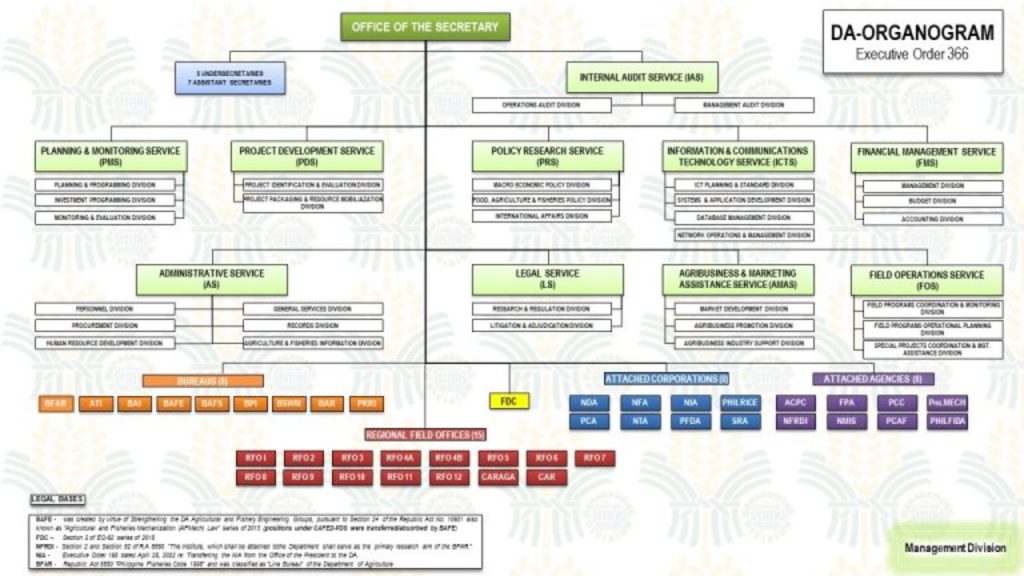
The organizational structure of the Department of Agriculture (DA) is centered around the Office of the Secretary, which oversees the entire agency. Several key services such as Internal Audit, Policy Research, Financial Management, and Administrative Services report directly to the Secretary. These services are divided into various divisions responsible for specific functions, such as operations, policy research, accounting, and planning. Additionally, the DA includes attached agencies as well as regional field offices across different regions of the Philippines. This structure allows for both centralized decision-making and regional execution to address local agricultural needs effectively.
Bureaus
- Agricultural Training Institute
- Bureau of Agricultural and Fisheries Engineering
- Bureau of Agriculture and Fisheries Standards
- Bureau of Animal Industry
- Bureau of Agricultural Research
- Bureau of Fisheries and Aquatic Resources
- Bureau of Plant Industry
- Bureau of Soils and Water Management
- Philippine Rubber Research Institute
Attached Agencies
- Agricultural Credit Policy Council
- Fertilizer and Pesticide Authority
- National Fisheries Research and Development Institute
- National Meat Inspection Service
- Philippine Carabao Center
- Philippine Center for Postharvest Development and Mechanization
- Philippine Council for Agriculture and Fisheries
- Philippine Fiber Industry Development Authority
Attached Corporations
- National Dairy Authority
- National Food Authority
- National Irrigation Administration
- National Tobacco Administration
- Philippine Coconut Authority
- Philippine Crop Insurance Corporation
- Philippine Fisheries Development Authority
- Philippine Rice Research Institute
- Sugar Regulatory Administration
Regional Field Offices
- BARMM
- CAR
- Region I
- Region II
- Region III
- Region IV-A
- Region IV-B
- Region V
- Region VI
- Region VII
- Region VIII
- Region IX
- Region X
- Region XI
- Region XII
- Region XIII
Benefits
The DA does not only promote agricultural development and ensure food security, but also oversees agricultural and fisheries development to improve productivity, enhance livelihoods, and address the needs of farmers and fisherfolk across the nation. Aside from the benefits from these services, the agency also helps the public by ensuring:
- Food Security: The DA implements programs to ensure a stable supply of food, directly addressing hunger and malnutrition in the population.
- Economic Growth: By supporting agricultural productivity, the DA contributes to overall economic development, particularly in rural areas where agriculture is a primary livelihood.
- Job Creation: Initiatives from the DA help create employment opportunities in farming, fishing, and related sectors, reducing poverty levels in rural communities.
- Sustainable Practices: The department promotes sustainable agricultural practices that protect natural resources and enhance resilience against climate change.
- Support Services: The DA provides technical assistance, training, and resources to farmers and fisherfolk, helping them improve their practices and increase yields.
- Market Access: Through various marketing programs, the DA helps local producers access larger markets, ensuring fair prices for their products.
- Regulatory Oversight: The DA enforces regulations that ensure food safety and quality standards, protecting consumers from unsafe agricultural products.
- Research and Development: The department invests in agricultural research to innovate and improve farming techniques, crop varieties, and pest management strategies.
- Community Empowerment: Programs aimed at marginalized sectors empower communities by providing support services that enhance food production and establish local enterprises.
These benefits collectively contribute to a more resilient agricultural sector that supports the livelihoods of millions while ensuring food availability for all Filipinos.
Coverage
The DA serves a wide range of beneficiaries through its various programs and services aimed at enhancing agricultural productivity and ensuring food security nationwide. It targets specific groups within the agricultural sector, with the purpose of uplifting the livelihoods of those who depend on farming and fishing.
- Farmers: Smallholder and commercial farmers benefit from training, financial assistance, and access to modern farming techniques.
- Fisherfolk: Individuals engaged in fishing receive support through sustainable practices, resources, and market access initiatives.
- Indigenous Peoples: Programs specifically designed for Indigenous communities provide livelihood opportunities and empower them through agriculture-related projects.
- Rural Communities: Local residents in rural areas gain from infrastructure development, job creation, and improved access to markets.
- Women in Agriculture: Initiatives aimed at promoting gender equality empower women by providing them with resources and training in agricultural practices.
- Youth: Young people are targeted through educational programs and entrepreneurial opportunities in agriculture to encourage their participation in the sector.
- Agribusiness Enterprises: Local agribusinesses benefit from marketing assistance and access to larger markets for their products.
- Cooperatives: Agricultural cooperatives receive support for capacity building and resource sharing, enhancing their operational efficiency.
These beneficiaries collectively contribute to a more resilient agricultural sector, fostering economic growth and improving food security across the Philippines.
Programs and Services
The DA offers various programs and services aimed at enhancing agricultural development and promoting inclusive growth in the Philippines. These initiatives support farmers, fisherfolk, and stakeholders in adopting sustainable practices, increasing productivity, and ensuring food security.
1. National Agriculture and Fisheries Modernization and Industrialization Plan (NAFMIP) 2021-2030
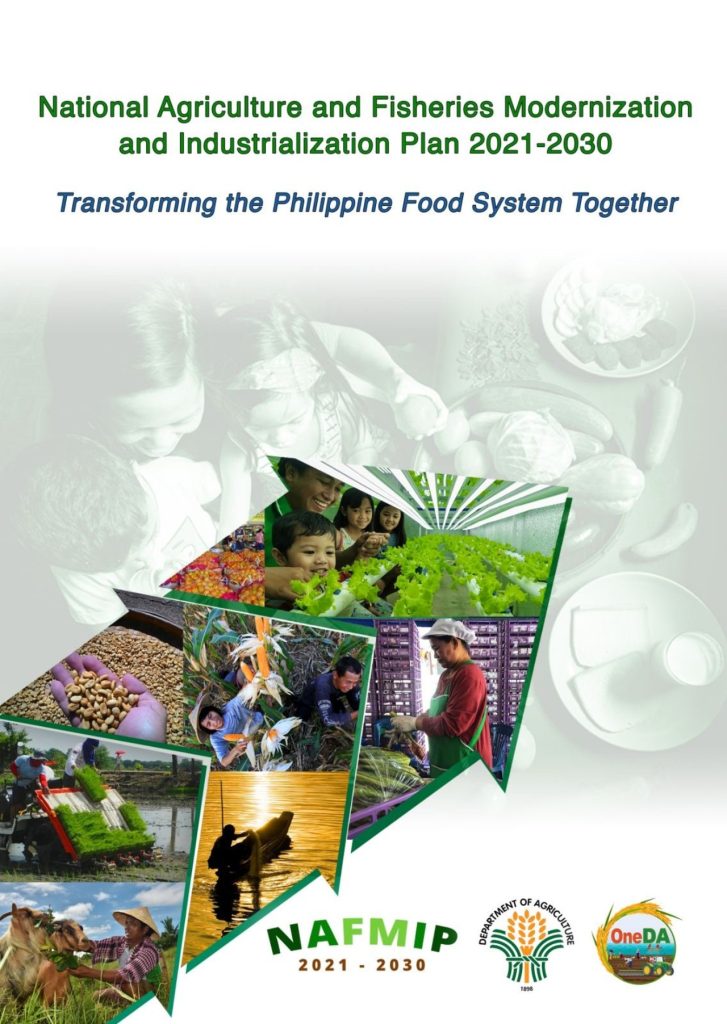
A comprehensive roadmap for modernizing the agriculture and fisheries sectors, aiming to increase farmers’ incomes and foster public-private collaboration.
2. Adaptation and Mitigation Initiative in Agriculture (AMIA)
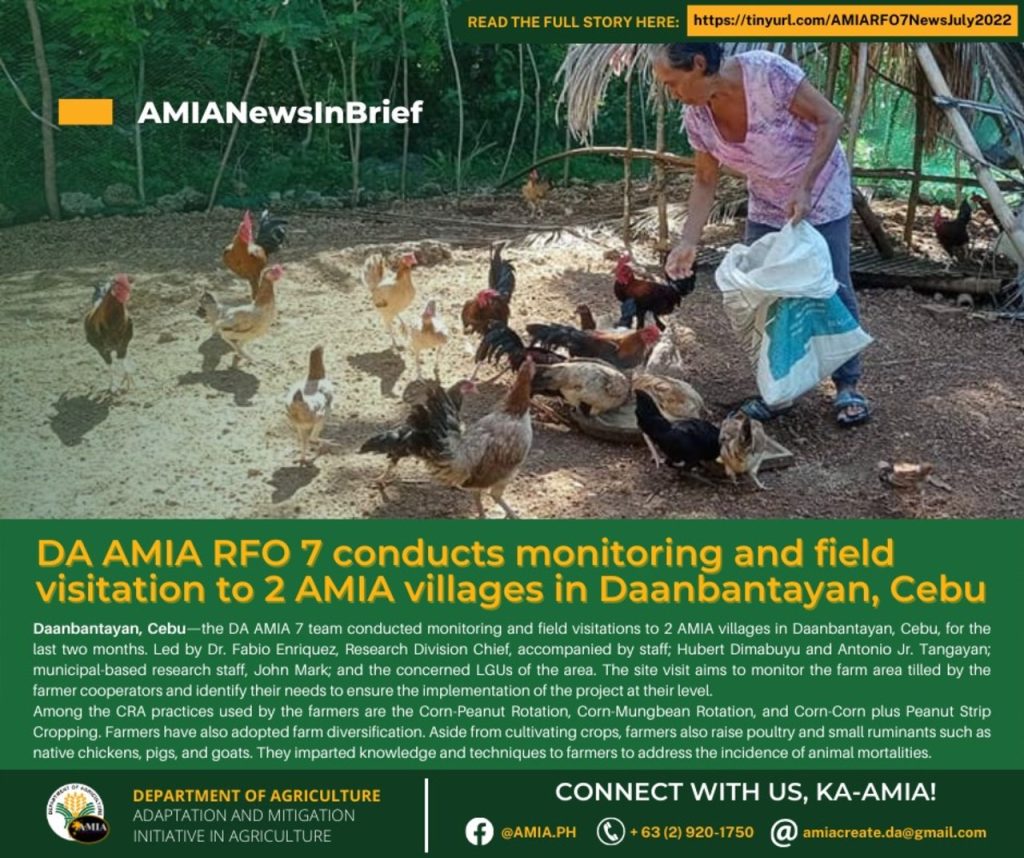
Focuses on promoting climate-resilient agricultural practices to protect vulnerable farmers and ensure food security in the face of climate change.
3. Philippine Rural Development Project (PRDP)
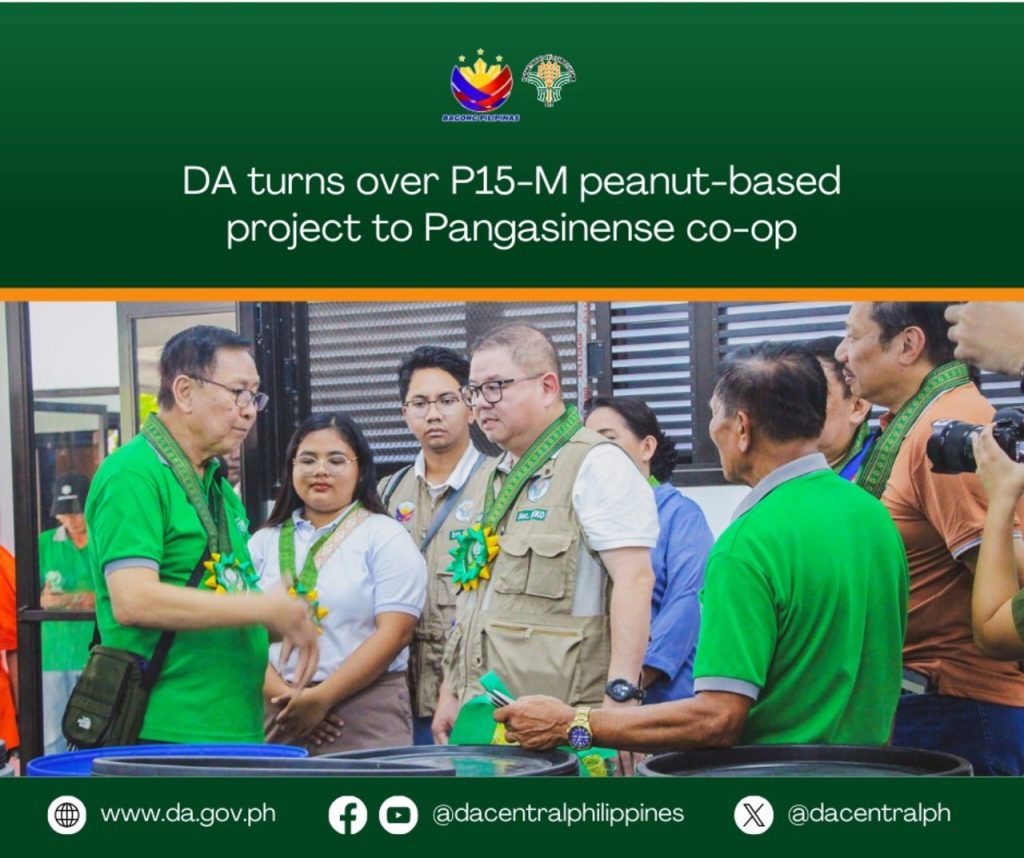
Aims to modernize the agri-fishery sector through partnerships with local governments and the private sector, providing infrastructure and technology to boost productivity.
4. National Organic Agriculture Program (NOAP)
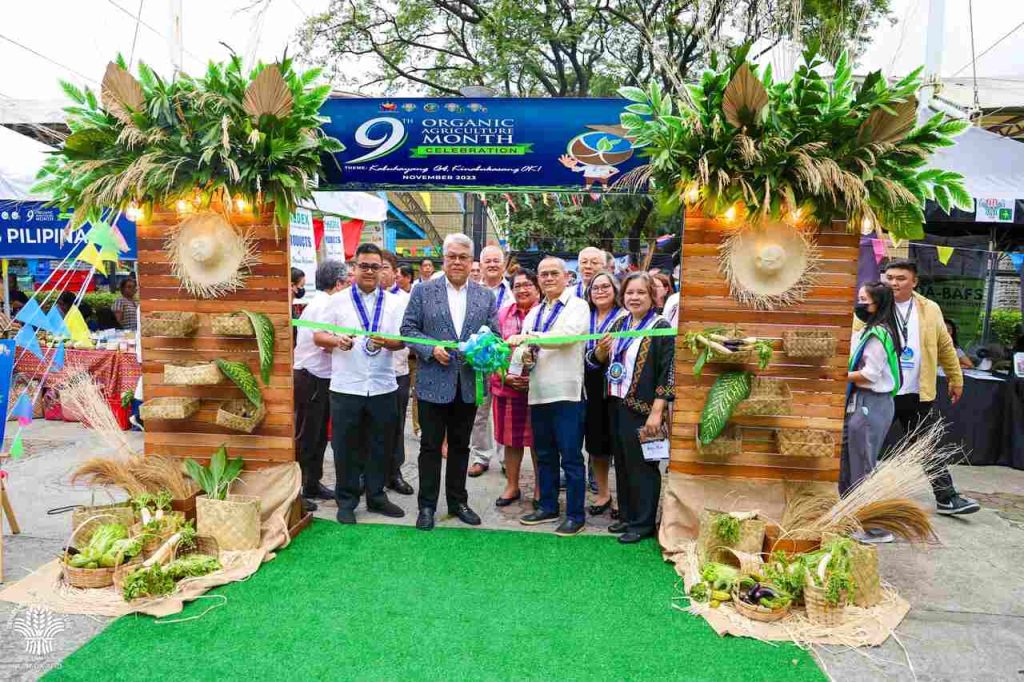
Promotes organic farming through various services, including capacity building, marketing assistance, and policy development, to support sustainable and profitable agriculture.
5. National Urban and Peri-Urban Agriculture Program (NUPAP)
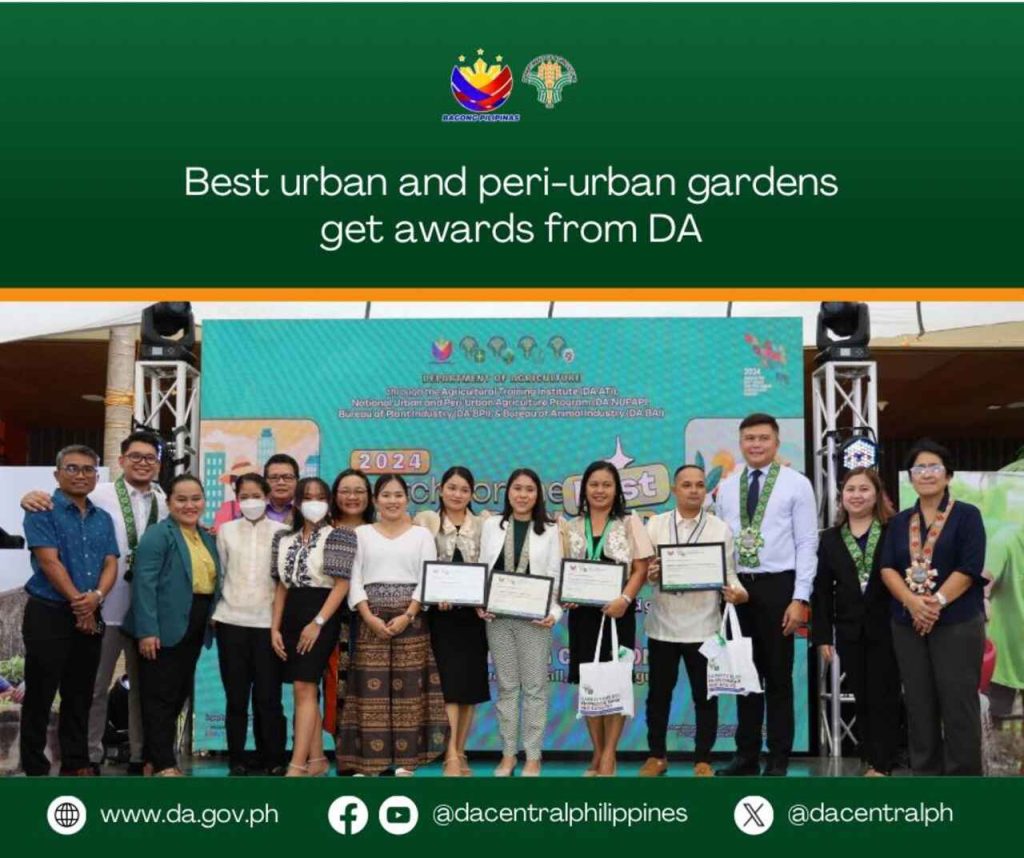
Supports urban gardening to improve food security, reduce food miles, and promote economic development in urban areas.
6. Halal Agricultural Production Program Initiatives (HAPPI)
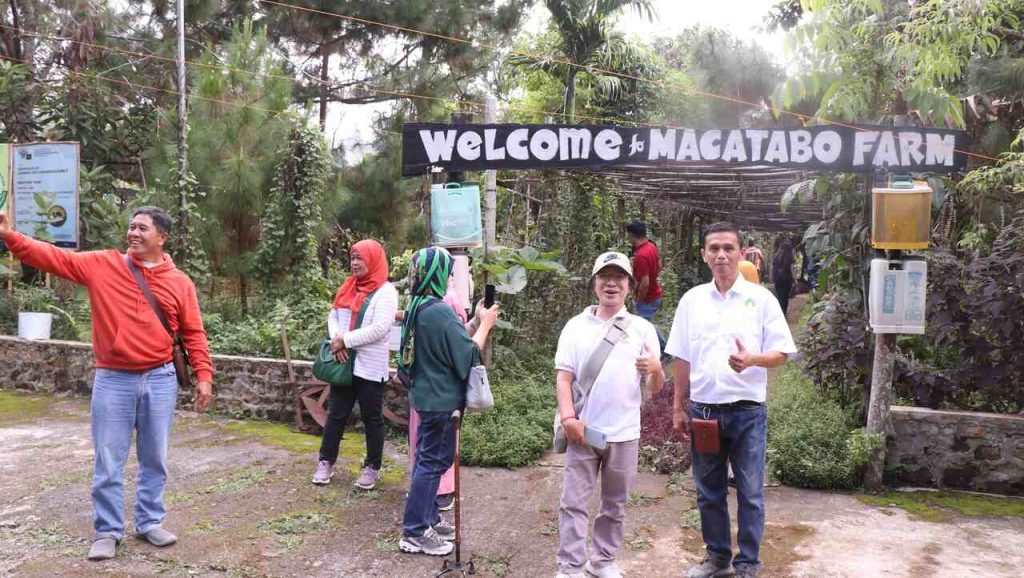
Focuses on promoting halal agricultural production for the local and export markets.
7. Locally Funded
The DA also runs locally funded programs aimed at boosting agricultural productivity, alleviating poverty, and ensuring food security in various communities across the Philippines. These programs are designed to address the specific needs of marginalized farmers, fisherfolk, and indigenous groups, empowering marginalized communities, promoting sustainable practices, and enhancing food security across the country.
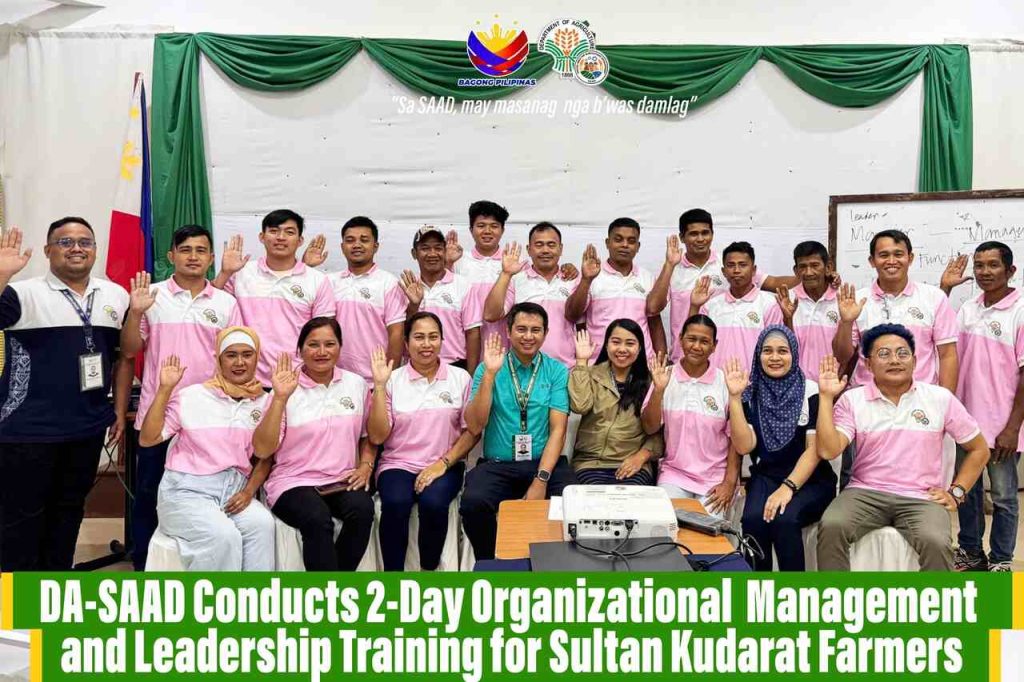
- Special Area for Agricultural Development (SAAD): Targets marginalized sectors by providing support services to improve food production and establish community enterprises in priority provinces.
- Kabuhayan at Kaunlaran ng Kababayang Katutubo (4Ks): Provides livelihood opportunities and support services to Indigenous Peoples (IPs) through agriculture-related projects and market development.
8. Marketing Services
The DA also has several marketing services programs designed to support farmers, fisherfolk, and agribusinesses in promoting their products, ensuring fair prices, and enhancing market access. These services aim to provide updated market information, improve competitiveness, stabilize prices, and promote fair competition, empowering local producers to participate in domestic and global markets.
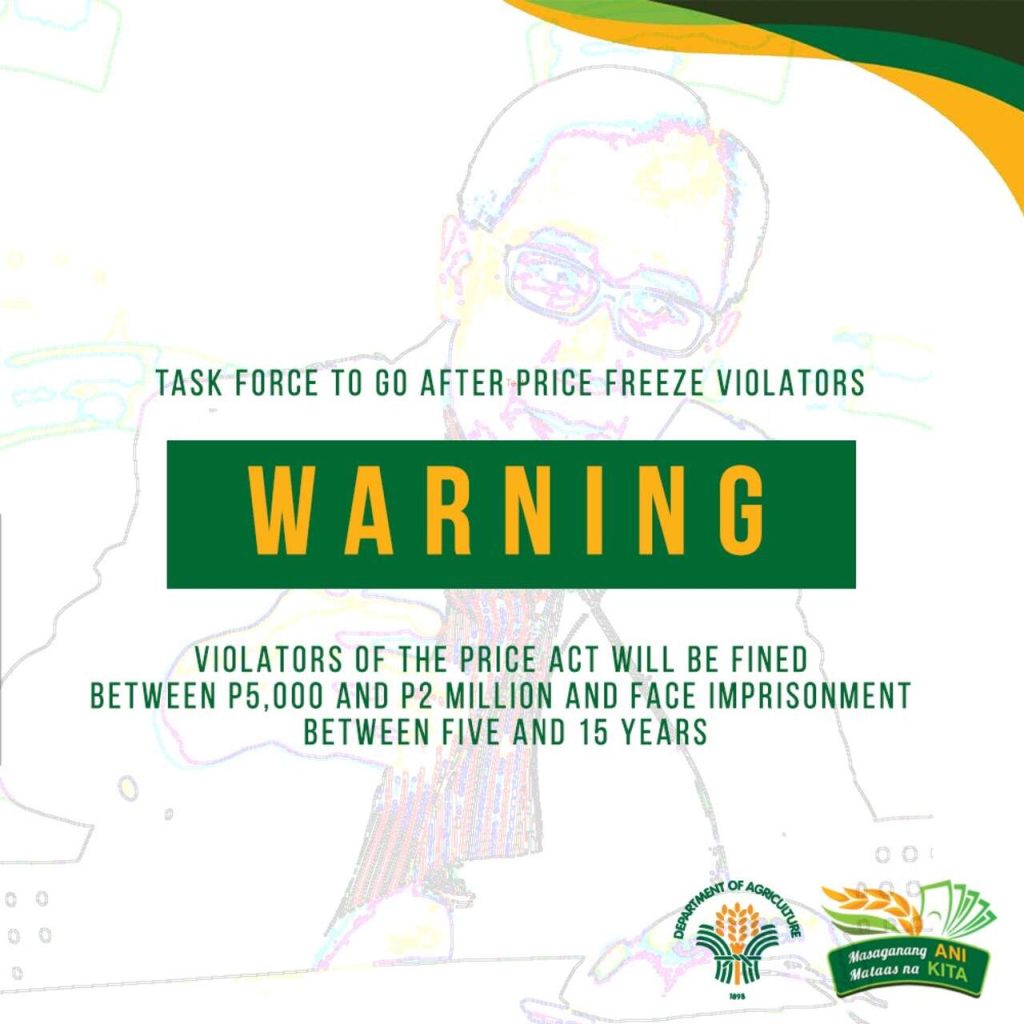
- Bantay Presyo (Price Monitoring): Offers daily price updates and market monitoring to ensure fair pricing of agricultural products across major markets in the country.
- Marketing Assistance: The DA extends support to local farmers and agribusinesses by connecting them to potential buyers and market hubs. This assistance helps improve access to larger markets, both locally and internationally, promoting competitiveness and expanding their customer base.
- OA Digital Marketplace: As part of its National Organic Agriculture Program, the DA promotes organic produce through the OA Digital Marketplace. This platform connects organic farmers with buyers, facilitating the sale and distribution of certified organic products, and supporting the growth of the organic farming sector.
9. Regulatory Services
The DA also offers a range of regulatory services designed to ensure compliance with agricultural laws, promote food safety, and maintain the quality of agricultural products. These services help protect both consumers and producers while maintaining the integrity of the agricultural industry, protecting public health and supporting the sustainable development of the agricultural sector.
- Issuance of Permits and Licenses: The DA provides permits and licenses for various agricultural activities, including the import and export of agricultural products, ensuring that all processes meet regulatory standards.
- Biosafety Permits: For the field trials of genetically modified organisms (GMOs), the DA regulates and issues biosafety permits, ensuring safe agricultural innovations.
- Product Standards and Quality Control: The DA sets and enforces product quality standards for crops, livestock, and fisheries to maintain high-quality and safe products in both domestic and international markets.
- Animal and Plant Quarantine Services: These services prevent the entry and spread of pests, diseases, and other harmful elements in plants and animals, safeguarding the country’s agricultural resources.
- Monitoring and Enforcement: The DA actively monitors compliance with agricultural regulations and enforces penalties for violations, ensuring a safe and productive agricultural environment.
10. Agricultural Competitiveness Enhancement Fund (ACEF)
The ACEF Lending Program provides critical credit access to farmers, fisherfolk, and cooperatives, enhancing their productivity and competitiveness. It supports micro and small enterprises in agriculture by offering loans for essential farm inputs and equipment.
11. Sikat Saka Program
This program facilitates direct credit access from LANDBANK for small palay and corn farmers, aiming to improve their financial viability and crop production. It includes comprehensive support services such as training, market assistance, and insurance coverage to empower eligible farmers.
12. Rice Farmers Financial Assistance (RFFA)
The RFFA offers a one-time cash grant of ₱5,000 to rice farmers with small landholdings, helping them cope with declining palay prices. This financial aid is aimed at maintaining productivity and supporting farmers registered in the Registry System for Basic Sectors in Agriculture.
13. Rice Competitiveness Enhancement Fund (RCEF)
Established under the Rice Tariffication Law, the RCEF aims to enhance the productivity and income of rice farmers through access to machinery, seeds, credit, and training. The program has a substantial budget to support various initiatives over six years.
14. Agricultural Credit Policy Council (ACPC) Survival and Recovery (SURE) Loan Program
The SURE Loan Program provides small farmers and fishers with loans of up to ₱25,000 at 0% interest to help them recover from calamities or economic hardships. This initiative is designed for areas declared under a state of calamity, offering financial relief without collateral requirements.
15. Young Agripreneurs Loan Program (YALP)
The YALP supports young Filipino farmers and fishers by providing loans of up to ₱500,000 with no collateral or interest charges. The program also offers business advisory services to encourage youth engagement in agriculture and fisheries.
16. Agri-Negosyo Loan Program
This program offers loans to small farmers, fisherfolk, and micro enterprises involved in agriculture or fishery, supporting various project needs like production and marketing. It features flexible loan terms and low-interest rates tailored to project cash flow.
17. ALERT ARBOs
The ALERT ARBOs Program provides affordable loans to Agrarian Reform Beneficiary Organizations (ARBOs) along with technical assistance and marketing support. This initiative aims to enhance the productivity and sustainability of ARBOs across the country.
18. PALAY ng Lalawigan Lending Program
This program assists local government units in procuring palay from farmers while facilitating the acquisition of farm machinery and post-harvest facilities. It aims to stabilize farm gate prices and promote local agricultural activities through financial support.
These DA programs have but one goal: To guarantee sustainable development, climate resilience, and inclusive growth for the agricultural sector.
Video: DA Malacañang Insider
Get to know the Department of Agriculture (DA) better and learn how it helps you stay well-fed and healthy by watching this video from RTVMalacañang.
Summary
The DA, as an agency, not only ensures food security and enhances the livelihoods of farmers and fisherfolk through various programs and policies. It also promotes sustainable practices and provides essential support to foster economic growth and resilience within the agricultural sector, addressing both current challenges and future needs.
Contact Information
To learn more about the DA and its programs and services, you may reach out to them directly via the following:
Department of Agriculture (DA)
Main Office Address: Elliptical Road, Diliman, Quezon City, 1100
Contact Number: +63 (2) 8928-8741 to 64 and +63 (2) 8273-2474
Email Address: osec.official@da.gov.ph (For general / technical documents), osec.invitation@da.gov.ph (For invitations / appointments, meeting requests, and courtesy call)
Official Website: https://www.da.gov.ph/
Official Social Media Pages
Facebook: https://www.facebook.com/dacentralphilippines
